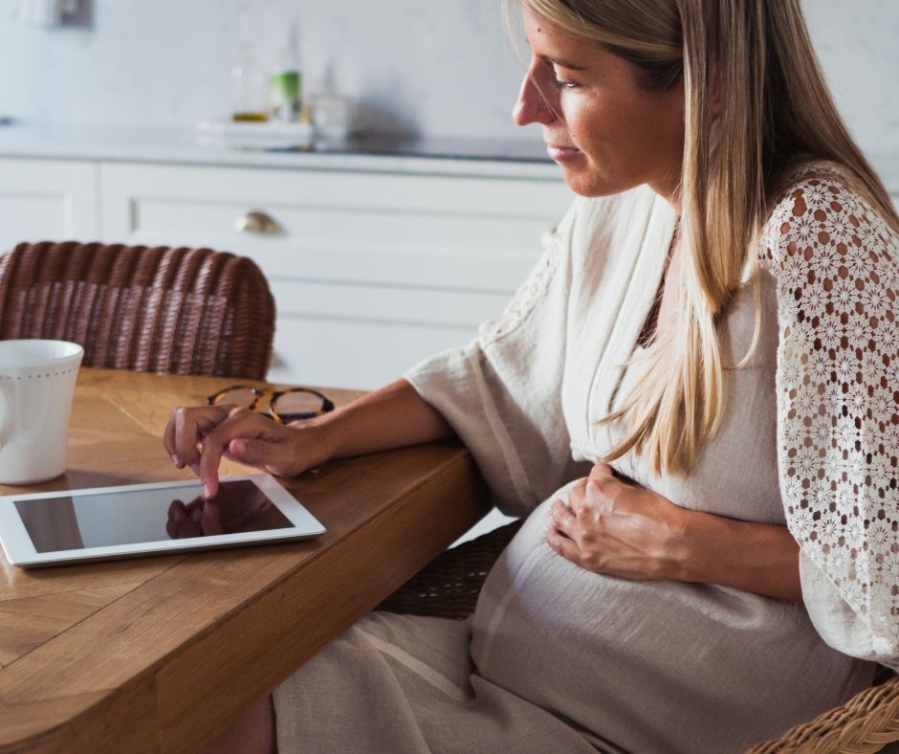Planning for maternity leave involves more than preparing baby’s new bedroom and agonising over names, it also requires financial planning. Whether your maternity leave will be paid, partially paid or unpaid, taking time away from work often comes with a reduction in income. Worrying about money can impact mental wellbeing so being prepared and understanding your finances beforehand can relieve stress, reduce anxiety and allow you to focus on your wonderful new arrival.
Here are some practical tips to help you prepare.
Understand your maternity leave pay and benefits
It is important to take time to understand how your maternity pay is allocated so you can determine how many weeks you’ll receive paid leave (if any) and what portion of your salary you will receive and when. If you are employed read your companies policies and ask for clarification from your HR and finance departments. Knowing exactly what you will earn and when helps to build a realistic plan and removes the unknown. It is also worth using the government benefits calculator to see if you are entitled to any additional support.
Create a maternity leave budget
Once you know your income for maternity leave compare this with your monthly outgoings. First it is important to identify your essential costs such as mortgage/rent, utility bills and food. Use a budgeting app or create a spreadsheet to track your income and expenses to see how it balances. If you have a partner they may need to consider whether they have the option to increase their workload as a short term solution.
Start saving
The earlier you begin saving, the more financially secure you will feel when baby arrives. Set a savings goal and open a separate savings account to avoid accidentally spending the money. Setting up automatic transfers to this new account with help you steadily grow the savings pot.
Reduce non-essential spending
During maternity leave you may want to think about how you can reduce your non-essential spending. It is a good idea to start this whilst pregnant to increase your savings and learn new habits. Cancelling unused subscriptions, meals out and takeaways are a good place to start. It is really important to recognise that it is vital to look after your mental wellbeing and having treats and things to look forward too can boost a sense of wellbeing, it is about finding a balance that works for you.
Stock up strategically
Try and stock up on the essentials before baby arrives, adding a packet of nappies and baby wipes to your weekly shopping probably won’t feel like a huge added cost per week and your future self will be thankful you have these supplies already. Ask family and friends if they can buy baby essentials for you as gifts. It is also a good idea to join local parenting and community social media groups as many parents give away gently used baby items for free or at heavily reduced prices.
Research and plan your baby activities
There is often a pressure placed on new mums and parents to attend a variety of baby classes but these often involve booking in bulk and can be expensive. Bonding with your baby is really important and meeting other mums and parents can really benefit your mental health and increase your support network but you don’t have to spend money to do that. There are lots of free classes available locally, where you can have fun with your baby and meet other local mums.
Declutter
Now is a good time to declutter, not only will it free up physical space in the house for new baby items but it is an opportunity to make some money. Consider whether you have any items you could sell on free selling platforms such as Vinted or Facebook market place and the money could be saved or used towards baby items.
Maternity leave is a special time for you, your baby and family but financial worries are known to contribute to feelings of stress, anxiety and declining mental health so it is important to speak up and ask for help from your GP, health visitor or mental health team.
You can also access additional support locally from children and family wellbeing services and food banks.

